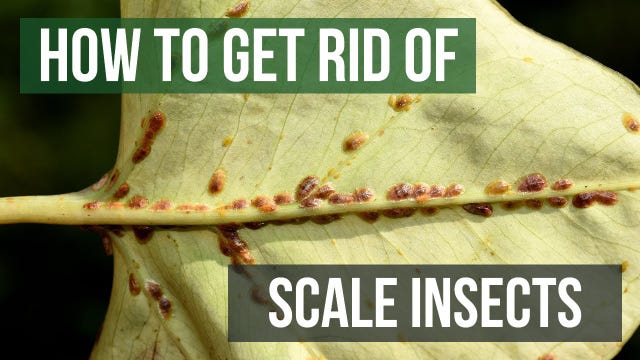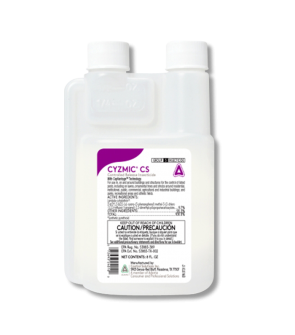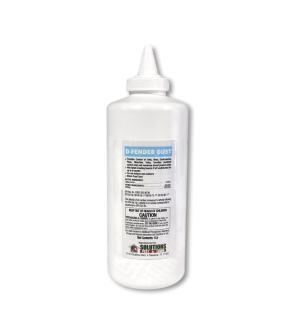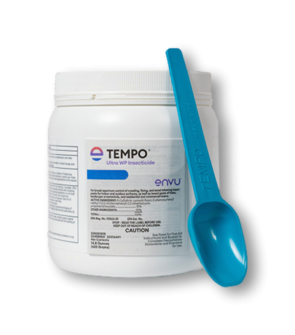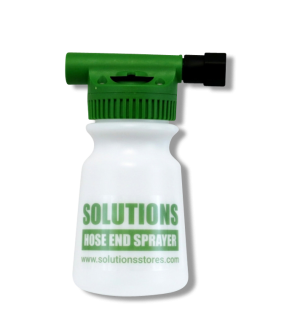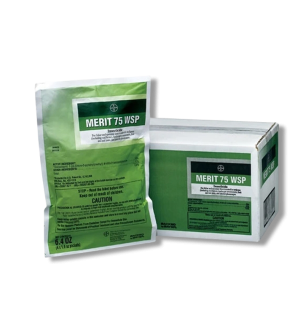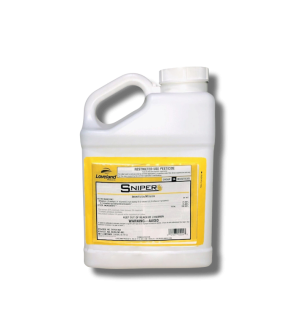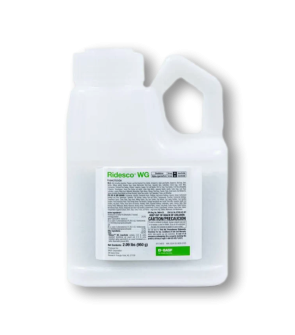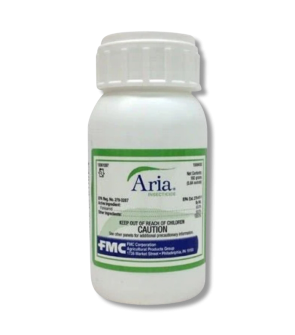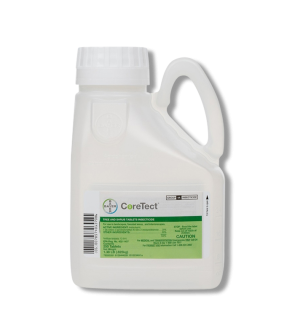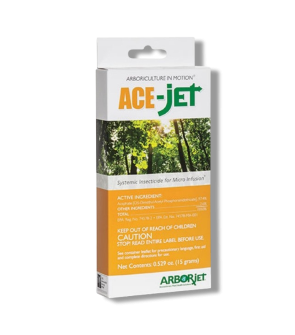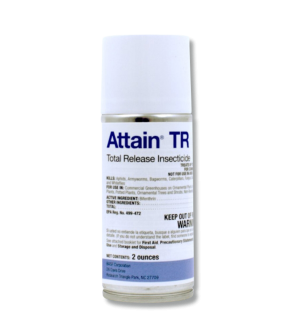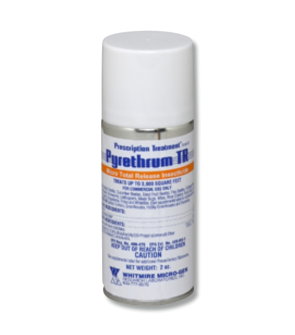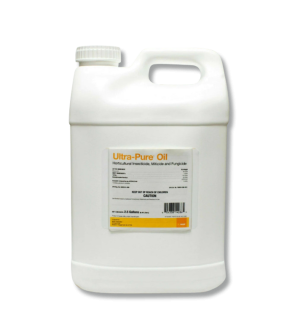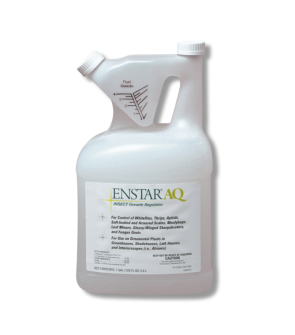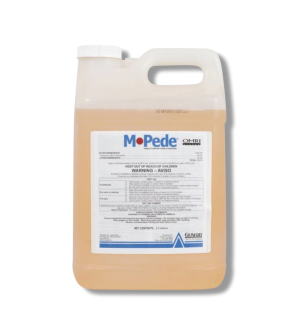Gain access to personalized product screening, the best pricing, rewards, and more!
Most Effective Products
Scale Insect Control: How To Get Rid of Scales on Plants
This page is a scale Insect control guide. Using the products and methods suggested, you will get control of scale insects on plants. Follow this guide, use the recommended products, and we guarantee 100% control of scale insects.
Many insect pests will feed on and damage our plants, but some that often go unnoticed are scale insects. Scale insects are small pests that usually fly under the radar of most homeowners and gardeners until their damage is apparent.
Scale insects on plants can kill or stunt their growth, cause black mold to form on leaves, or even attract activity from other pests, like ants or wasps. Scales may be tiny, but if left untreated, they can become a huge problem for healthy plants.
If you notice scale insects damaging your plants, you must act quickly to eliminate the infestation. Follow our DIY treatment guide below to learn more about this plant-feeding pest and how to remove it from your garden using our effective, professional-grade products.
Identification
The first part of any pest control plan is identifying what you are dealing with. Without knowing which pest may be harming your plants, you cannot determine the best treatment strategy.

- Scale insects are small, round, or elliptical insects that vary in size but are generally between 1/16 and 3/8 of an inch in length.
- Scales can be divided into armored scales and soft scales, such as mealybugs.
- Armored scales have their own protective, scaly coating.
- Soft scales produce a waxy shell and honeydew, a sugary waste material that can attract other pests, like wasps.
- Honeydew left behind by unconsumed soft scales will eventually rot and invite a black fungus called sooty mold to overtake plant leaves.
- Female and male scale insects differ greatly in appearance. With most infestations, you are likely dealing with female scales, as seeing a male scale is rare.
- Female scale insects resemble fish scales (hence their name) and grow along plant leaves. They have no legs and cannot crawl.
- Male scale insects look like tiny flies with functional wings and two tail filaments.
- Depending on the species, scale insects go through one or two generations per year. As young scale insects, they can crawl around the leaf surface until they mature.
Inspection
Inspection is the next step in a treatment program. Once you know what your potential pest looks like, you should inspect your plants for signs of activity.
Where To Inspect
Scales will feed on trees, shrubs, or even house plants, depending on the species. On herbaceous plants, you can often find scales settling along stems or leaf veins since those are the biggest sources of moisture on the plant. You can also find scales on fruits or underneath bark.
What To Look For
Be on the lookout for common signs of scale infestation on plants. These include yellow, dying leaves, honeydew drippings, sooty mold from rotting honeydew, warped or stunted plant growth, and even scale insects themselves. Some types of scales, like mealybugs, produce cotton-like webbing, which makes them easier to spot.
Treatment
Once you have identified scale insects on your plants, it is time to start treatment. Before starting any treatment, wear the proper personal protective equipment (PPE) and keep all people and pets off and away from the treated areas until dry.
To effectively eliminate scale insects in large areas, use Dominion 2L. This systemic insecticide is absorbed into treated plants and translocated through the plant tissue. It effectively kills any insect pest that feeds on the treated plant while keeping your plant safe.
Dominion 2L is recommended for treating larger plants and landscape ornamentals. To easily make large-volume applications, we suggest using a hose-end sprayer.
Remember that Dominion 2L is recommended for treating larger plants and ornamentals. For a small application to indoor potted plants, you may want to use an alcohol solution with a spray bottle.
Step 1: Determine How Much Dominion 2L You Will Need

Determine how much Dominion 2L you will need by calculating the square footage of the treatment area for treating flowers and ground cover. To find the square footage, measure the treatment areas' length and width in feet, then multiply them together (length x width = square footage).
Dominion 2L must be applied at a rate of 0.4 to 0.6 fluid ounces per 1,000 square feet with at least 10 gallons of water.
For example, if you had measured a 1,500 sq. ft. area for treatment, you would need to apply 0.6 to 0.9 fl. oz. of Dominion 2L in at least 20 gallons of water.
To treat trees and shrubs, you will need to measure the area differently. For trees, you will need to measure the tree trunk's diameter in inches and apply Dominion 2L at a rate of 0.1 to 0.4 fl. oz. per inch of trunk diameter with at least 10 gallons of water. For shrubs, you must apply Dominion 2L at a rate of 0.1 to 0.2 fl. oz. per foot of shrub height.
Step 2: Apply Dominion 2L to Plants

The easiest and most effective way to apply Dominion 2L for scale control is to apply it in a high volume around the base of the plant to reach the plant's root zone effectively.
Apply Dominion 2L uniformly as a drench around the base of the plant with at least 10 gallons of water per 1,000 square feet (this is why it is recommended to use a hose-end sprayer). Focus on getting the pesticide solution down to where the plant's roots reside.
With that in mind, be sure to remove any netting, plastic, or other barrier that may hinder the pesticide from reaching the roots.
You will want to apply similarly for flowers and ground cover, evenly broadcasting the solution on and around the plants. Watering the area after application will help drive the Dominion 2L solution further down to the plant's root zone.
Keep in mind that Dominion 2L is extremely effective against scale insects and other plant-feeding insects, which means it harms bees. To avoid harming pollinators, do not apply Dominion 2L when your plants are flowering.
Step 3: Treating Scale on Houseplants

When removing scales on houseplants, a spot treatment using a trigger sprayer may be best. An easy at-home remedy for scales is isopropyl alcohol (rubbing alcohol). Spray the scales directly with the alcohol to kill them.
While rubbing alcohol is generally safe for houseplants, it is always a good idea to spray a small test area to gauge your plant's sensitivity. Do this for a couple of days and look for any adverse effects, like leaf burning or yellowing.
Prevention
Prevention is essential in ensuring that your scale problem does not return or manifest in the first place.
- To prevent damage from scales, it is best to be diligent about monitoring your plants, checking for scale activity, and spraying them when necessary. Keep an eye on your plant's health; if something does not seem right, get to the root of the issue.
- If you find scales on houseplants, be sure to isolate them from other plants to contain the scale population until it is eliminated. Outdoors, you can attract beneficial insects, like ladybugs, by growing certain plants in your garden that those insects love. Ladybugs are natural predators of scale insects and other plant-feeding insect pests, like aphids, so use them as a natural deterrent.
- Finally, make sure to conduct quarterly re-applications of Dominion 2L, as it will remain effective for up to 90 days.
Key Takeaways
What Are Scale Insects?
- Scales are small plant-damaging insects that will damage a variety of garden plants.
- Scale insects are either armored or soft and will give your plant a scaly appearance as the infestation grows.
- Scales are common plant pests in gardens, greenhouses, landscape ornamentals, fruit trees, and house plants. They are typically found in warmer, moist climates.
How To Get Rid of Scale on Plants
- We recommend using Dominion 2L because it is a powerful systemic insecticide with a broad label.
- Apply Dominion 2L uniformly as a drench around the base of the plant with at least 10 gallons of water per 1,000 square feet using a hose-end sprayer. Focus on getting the pesticide solution down to where the plant's roots reside.
- For indoor plants, use isopropyl alcohol (rubbing alcohol.) Spray the scales directly with the alcohol to kill them.
Preventing Scale Insect Reinfestation
- After successful control, a preventative application of Dominion 2L will protect your plants from possible scale reinfestations.






